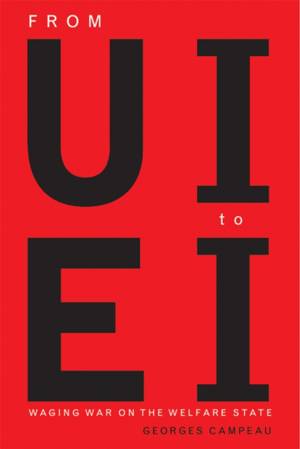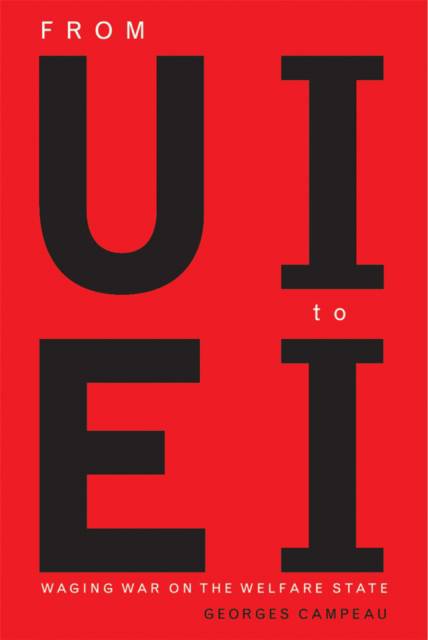
- Afhalen na 1 uur in een winkel met voorraad
- Gratis thuislevering in België vanaf € 30
- Ruim aanbod met 7 miljoen producten
- Afhalen na 1 uur in een winkel met voorraad
- Gratis thuislevering in België vanaf € 30
- Ruim aanbod met 7 miljoen producten
Omschrijving
Established in 1940 in response to the Great Depression, the original goal of Canada's system of unemployment insurance was to ensure the protection of income to the unemployed. Joblessness was viewed as a social problem and the jobless as its unfortunate victims. If governments could not create the right conditions for full employment, they were obligated to compensate people who could not find work. While unemployment insurance expanded over several decades to the benefit of the rights of the unemployed, the mid-1970s saw the first stirrings of a counterattack as the federal government's Keynesian strategy came under siege. Neo-liberalists denounced unemployment insurance and other aspects of the welfare state as inflationary and unproductive. Employment was increasingly thought to be a personal responsibility and the handling of the unemployed was to reflect a free-market approach. This regressive movement culminated in the 1990s counter-reforms, heralding a major policy shift. The number of unemployed with access to benefits was halved during that time.
Specificaties
Betrokkenen
- Auteur(s):
- Uitgeverij:
Inhoud
- Aantal bladzijden:
- 256
- Taal:
- Engels
- Reeks:
Eigenschappen
- Productcode (EAN):
- 9780774811224
- Verschijningsdatum:
- 30/11/2004
- Uitvoering:
- Hardcover
- Formaat:
- Genaaid
- Afmetingen:
- 152 mm x 229 mm
- Gewicht:
- 453 g

Alleen bij Standaard Boekhandel
Beoordelingen
We publiceren alleen reviews die voldoen aan de voorwaarden voor reviews. Bekijk onze voorwaarden voor reviews.











